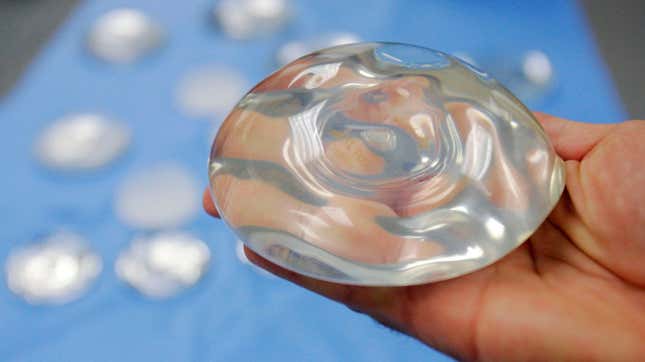FDA Now Wants Breast Implant Manufacturers to Warn People of Potential Risks
Latest

After years of advising that it’s largely safe to get breast implants, the Food and Drug Administration is now recommending that breast implants come with stronger warnings about their possible health risks, ranging from fatigue to a rare form of cancer associated with a specific type of textured implant.
On Wednesday, FDA officials released a guidance proposing that implant manufacturers include a boxed warning, which the Associated Press noted is the “most serious type of warning,” on their breast implants, as well as a checklist that spells out the potential risks and complications.
-

-

-

-

-

-

-

-

-

-

-

-

-

-

-

-

-

-

-

-

-

-

-

-

-

-

-

-

-

-

-

-

-

-

-

-

-

-

-

-








































